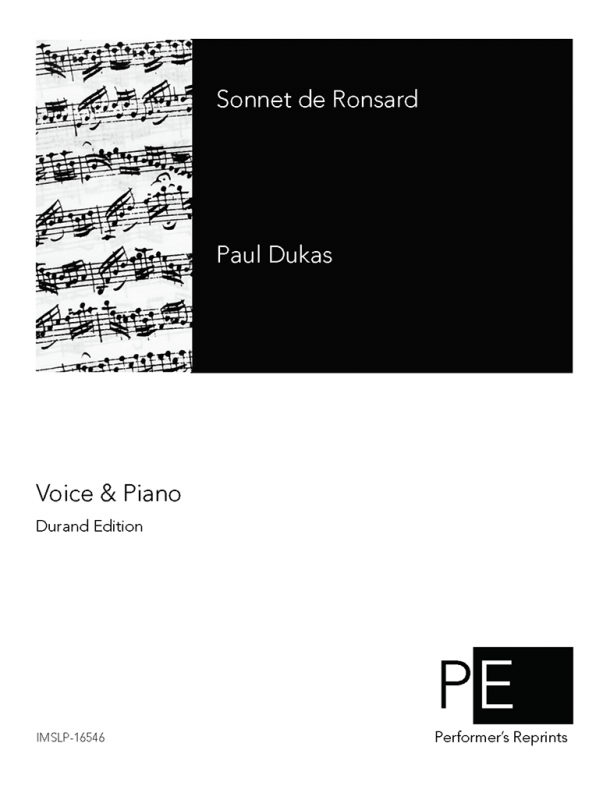Obscure Music Monday: Dukas' Sonnet de Ronsard
Paul Abraham Dukas (Oct. 1, 1865 - May 17, 1935) was a French composer, professor, and critic, born in to a Jewish family. The second of three children, Dukas didn't show any extraordinary musical talent, despite taking piano from a young age, until his teenage years, when he started to compose while recovering from an illness. When he was 16 years old, he entered the Paris Conservatory, studying piano with George Mathias, harmony with Théodore Dubois, and composition with Ernest Guiraud. While he was there, he won several prizes, including second place for the coveted award Prix De Rome. He was upset he didn't win the top prize however, and left the university in 1889. After compulsory military service, he devoted himself to composing and has a career as a critic as well. He later on became Professor of Composition at the Paris Conservatory and also taught at the École Normale de Musique.
One of Dukas' compositions is a thoroughly Impressionistic work for voice and piano, Sonnet de Ronsard, a dedication to the Renaissance poet Pierre de Ronsard. Dukas' chord progressions are fascinating and unexpected at times, and that no doubt adds to the intrigue of this short, three and a half minute composition. Based on one of Ronsard's works, it's a song of young love, translated (roughly) as such:
May your sweet word
My youth offended treacherously,
When in the orchard you led her to dance
On my twenty years the carolle lover!
So love put me in his school,
Having a wise master for thinking
Who without reason led me to start
The rosary of such a crazy dance
For five years host of this orchard,
I'm going dangling with that False Danger,
Holding the hand of an overly cautious lady.
I am not alone out of love;
To my youth you must blame:
In gray hair I will be more cunning.
We can't find any recordings for this, but hope that changes soon!



1 Comment